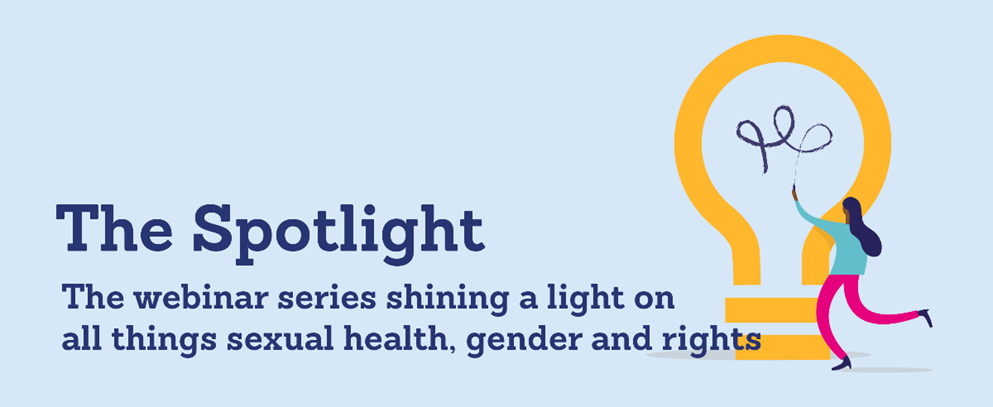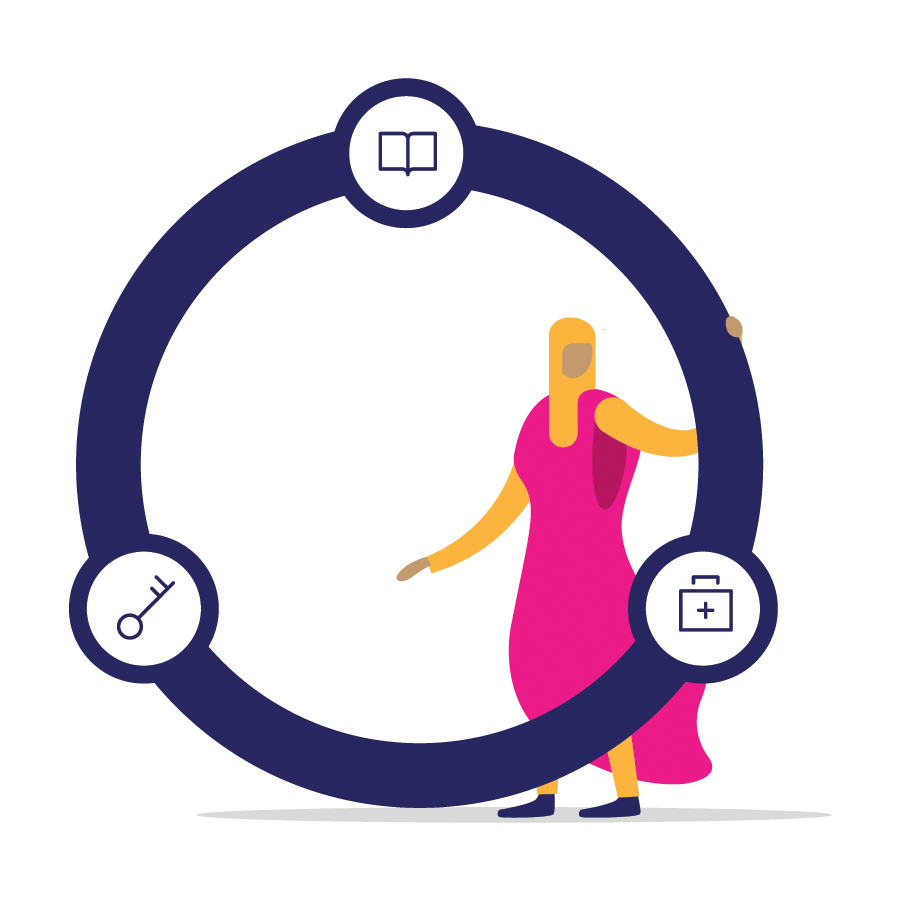Subscribe to our newsletter to receive the latest SafeAccess articles, straight to your inbox.
sign upWith the evolving pandemic impacting reproductive rights and frontline healthcare the world over, and many of us now working at home, it’s important to remain connected. Given that many of the events that would have brought our communities together this year have been cancelled, we would like to continue some of these conversations.

To support this dialogue, Marie Stopes International are launching a new webinar series – The Spotlight – inviting partners from the sector and beyond to discuss key issues facing sexual and reproductive health, gender and rights.
The series began on Wednesday 8th April with the first webinar - Delivering access to safe abortion in the time of COVID-19 - sharing the potential impact of coronavirus on Sexual and Reproductive Health and Rights (SRHR), alongside strategies for ensuring women can continue to access safe abortion services during the crisis; through telemedicine, pharmacies and government partnerships.
The webinar featured presentations from:
Bethan Cobley, Marie Stopes International’s Director of Policy and Partnerships sharing estimations on the potential impact of COVID-19 on our services, challenges facing SRH programmes globally and an overview of the strategies we can take a global and local level to sustain access for women.
Satyajit Pradhan, Evidence 2 Action Director, Marie Stopes Nepal sharing the inspiring progress the Nepal programme have already made. Nepali services were forced to close under the lockdown, as providers were unable to travel to the services. In tandem, their call centres were seeing an increase in calls from women seeking safe abortion care. However, by working in partnership with government, and with support from WHO and UNFPA, the Nepal team have been able to access mobility passes for providers and re-open eleven centres to date, with more in the pipeline, ensuring women can still access life-changing safe abortion and contraceptive care.
Dr Catriona Melville, Deputy Medical Director and Jacquie O’Brien, Director of External Affairs and Policy, Marie Stopes Australia presenting their telemedicine programme, which was the first in Australia and received positive feedback from both providers and clients during an external evaluation by Ibis reproductive health. Dr Catriona shared details on their criteria for clients accessing telehealth, the client journey, the support available to clients and how the model is being adapted under COVID-19.
Dr Rodica Comendant, Director of the Reproductive Health Training Center (RHTC), as a grantee of Safe Abortion Action Fund, presented the telemedicine programme RHTC have set up in post-conflict regions of Moldova, delivering care for women unable to travel for care under COVID-19. As a consultant for Women Help Women, Dr Rodica shared key insights on setting up telemedicine schemes in low- and middle-income settings.
Katy Footman, Marie Stopes International’s Senior Research on SA/PAC sharing the important role of pharmacy provision in our work to eliminate unsafe abortion, particularly in low- and middle-income settings where pharmacies can be the first port-of-call for women seeking abortion care, and the increased importance under COVID-19. Katy shared the challenges that can be expected for pharmacy provision under COVID and evidence-based strategies for how we can support women to safely self-administer medical abortion pills from pharmacy settings.
You can watch the webinar in full, below. Please share any questions or comments in the comment section below!
Future webinars related to safe abortion and post-abortion care will be announced via SafeAccess. Subscribe to the newsletter to remain updated.
Additional resources on the topic include:
- The methodology behind MSI's impact figures
- Telemedicine evaluations from colleagues at WHO and Gynuity, which have found telemedicine services to be just as effective and acceptable as facility-based provision. An evaluation from Ibis Reproductive Health, which found MSI's telehealth programme in Australia to be highly acceptable to both clients and providers will be published shortly
- UNFPA Supplies Briefing Paper, including the impact of COVID-19 on supply chains
- Coverage of the estimated impact of COVID-19 on MSI's service delivery in the New York Times and the Guardian.






